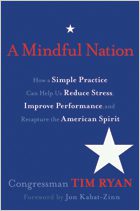 I don’t feel like writing a post. I didn’t feel like exercising either. I don’t feel like sitting, too. Fortunately, I am hosting a group sit later this afternoon, so this will help me to overcome my sloth and torpor.
I don’t feel like writing a post. I didn’t feel like exercising either. I don’t feel like sitting, too. Fortunately, I am hosting a group sit later this afternoon, so this will help me to overcome my sloth and torpor.
Don’t ask me what the difference between sloth and torpor are. I suppose sloth, based on the metaphor of the sloth connotes laziness while torpor connotes fatigue. Either way, I think I’ve got them both today.
I did exercise and I feel better for it. I know I will be grateful for the meditation session later today. Why do we succumb to S & T so readily? I’ve got some ideas and suggestions below:
Many of us are overwhelmed by chronic stress. Adding yet another thing to the t0-do list, even something beneficial like meditation or exercise can feel like too much. Sloth becomes a defense against overextension. Torpor may be a sign that we are out of balance. Moving closer to balance may open a space for practice.
Change something about the way you practice. If you sit with eyes closed, try practicing with eyes open. If you don’t want to sit, try standing meditation, walking, or lying down (all noble postures for practice).
Over fifty years of behavioral psychology has demonstrated that positive reinforcement is much more effective than punishment. Don’t punish yourself for not sitting (perhaps with name calling). Find a way to reward yourself for the effort of practice. Whatever you do, don’t beat yourself up.
Find a buddy or a group to practice with. This structure, as I mentioned above, can be a real boon for practice.
Like any adverse experience we can explore the feeling of sloth and torpor as the object of practice. Where do you feel it in the body? What happens when you direct attention away from the storyline to energy that is present now?
Obviously, if the Buddha was talking about sloth and torpor 2500 years ago it is not a modern or post-modern invention. They are going to arise and that’s not really a big deal if we can get around them.
Once in a while, it may be important to just be lazy and not practice. If that becomes a habit, then it’s difficult to make progress. To change we actually have to change the way we engage with our emotions.
Sometimes, it is enough to give yourself permission to practice. Just ask, as if you were asking a friend. “Do you mind … ?”

